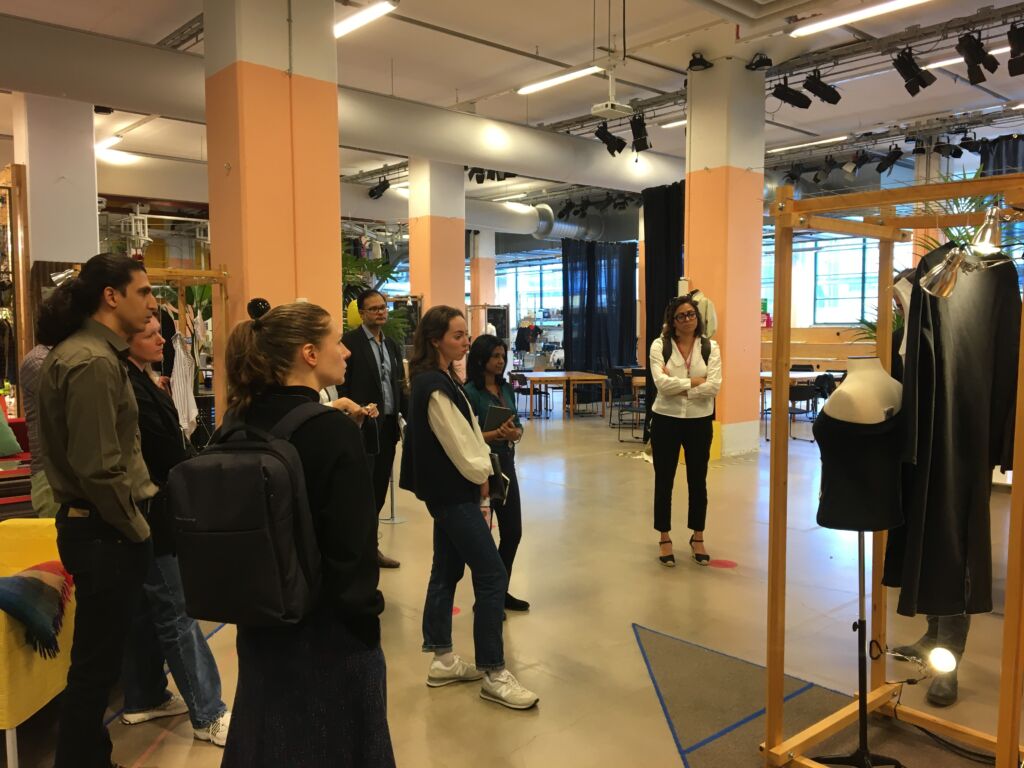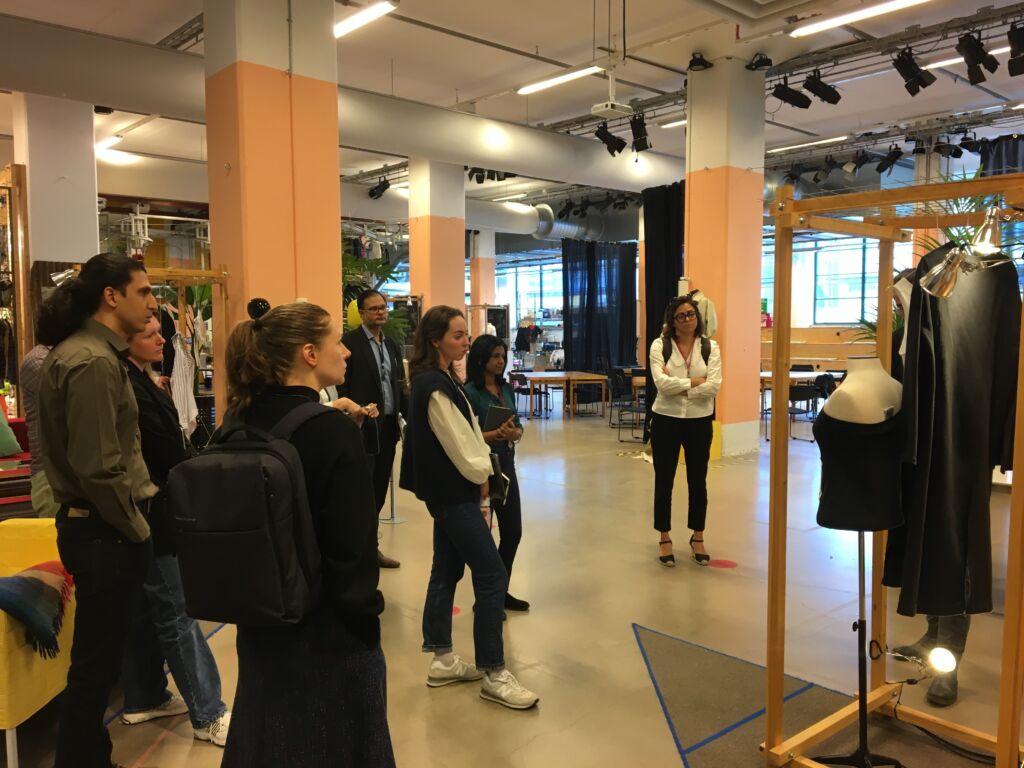Researcher exchange and cooperation around the new business models for circular economy


I went on a researcher exchange to the University of Borås, to the Swedish School of Textiles, in Sweden in May 2023. The trip was a part of the research activities of our Business Finland project Telavalue. The project involves a lot of international cooperation. One important partner is the Swedish School of Textiles in Borås and there the “Textile Value Chain Management” (TVCM) research group. As a part of the Swedish School of Textiles, TVCM is part of Telavalue’s Science & Technology Board. TVCM is headed by professor Rudrajeet Pal, who kindly invited me for a research exchange with them. I work at the Circular Business Models research group at Turku University of Applied Sciences, and we have been studying circular economy and especially its business models for almost 10 years.
TVCM conducts interesting research from Telavalue’s point of view:
Within the area of textile and fashion research at University of Borås through the Swedish School of Textiles, research in textile value chain management (TVCM) focuses primarily on the examination and development of ‘new’ structures, models and forms, and their underlying variables and antecedents that would enable sustainable value generation in textile and fashion enterprises, industry, and for the environment and society at large.
Important research areas within its scope are for example in: digitalization, circularity, risk and resilience, transparency and traceability, customization, servitization, agility, inter-organizational collaboration, localization and right-shoring, along the processes of production, design, retail, distribution and logistics in extended textile and fashion enterprises.
Within its scope, research projects are carried out in close cooperation with the textile and fashion industry, both in Sweden and globally that creates a unique networked environment leading to applicable results.
The themes mentioned above have a huge number of similarities with Telavalue’s research from the point of view of new circular business models in terms of multidiciplinarity, cooperation and value creation. I also visited some other, highly interesting units like the Loop Factory and the DOTANK Center that gave great insights into the innovations in circular business models.
In Telavalue, Turku UAS leads a work package, the aim of which is to study novel circular business models, such as product as a service and second hand (reuse). Telavalue also studies renewables and recycling, but the work package led by Turku UAS focuses on the so-called to newer (novel) business models. More precisely, we research these business models in practice, their environmental and social impacts, economic effects, changes in forms of ownership and cooperation models. In addition, our research partners from VTT examine these e.g. through value creation, the role of the consumer and data, and LAB’s partners from the perspectives of design and product design.
I spent an intense period in Borås. I learned a lot and was able to present our own research. The themes resonate both ways.
Some of the most important notes taken from the trip:
- Second-hand business is undergoing a huge change both at the company level, at the level of cooperation networks and operating models, and globally in value chains. Demand and supply are growing at a furious pace and the spectrum of different operating models is already huge.
- Promoting a sustainable circular economy in the sector is important, that is, we must be able to evaluate the social, environmental, and economic impacts of different operating models. At the same time, consumption and the use of natural resources must be reduced.
- There is a huge amount of research in the field, and we will continue our research cooperation with Borås.
Telavalue will continue for just under a year, and the research work will continue actively. After the summer of 2023, we will be able to publish our results, e.g. from the analyzes of the new business models in terms of social impacts, and the environment and financial aspects. In addition, during the summer we will conduct a startup survey, which will examine what we can say about the new business models through the startup field. And in addition to these, we also deal with changes in cooperation and ownership regarding new business models.
The second hand business development work continues at Turku UAS also within the framework of the Baltic2Hand project, where for the next three years, together with Finnish, Swedish, Estonian and Latvian operators, we will research and develop the business of the sector with both NPOs and companies in the sector. (Read more about the Baltic2Hand project)
We will definitely cooperate with Borås University’s Swedish School of Textile. Research work on new circular business models is more relevant than ever.
Piia Nurmi
Ssenior lecturer, Circular business models research group, vice-leader of research, Turku UAS
